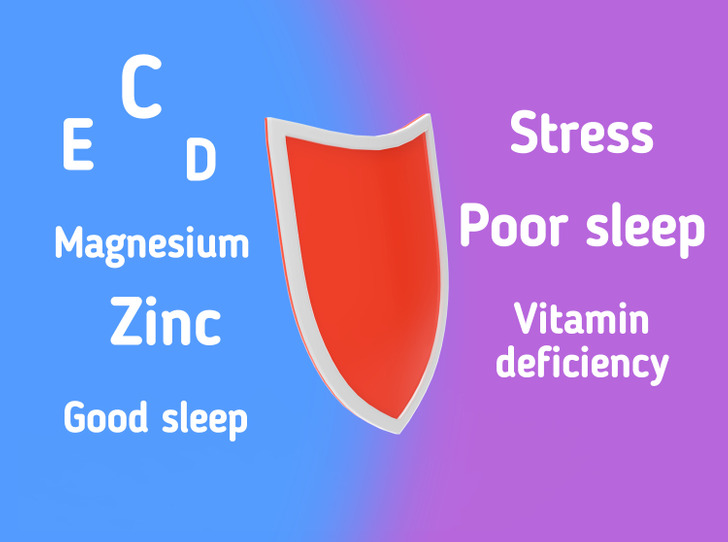What the Immune System Is and How to Help It
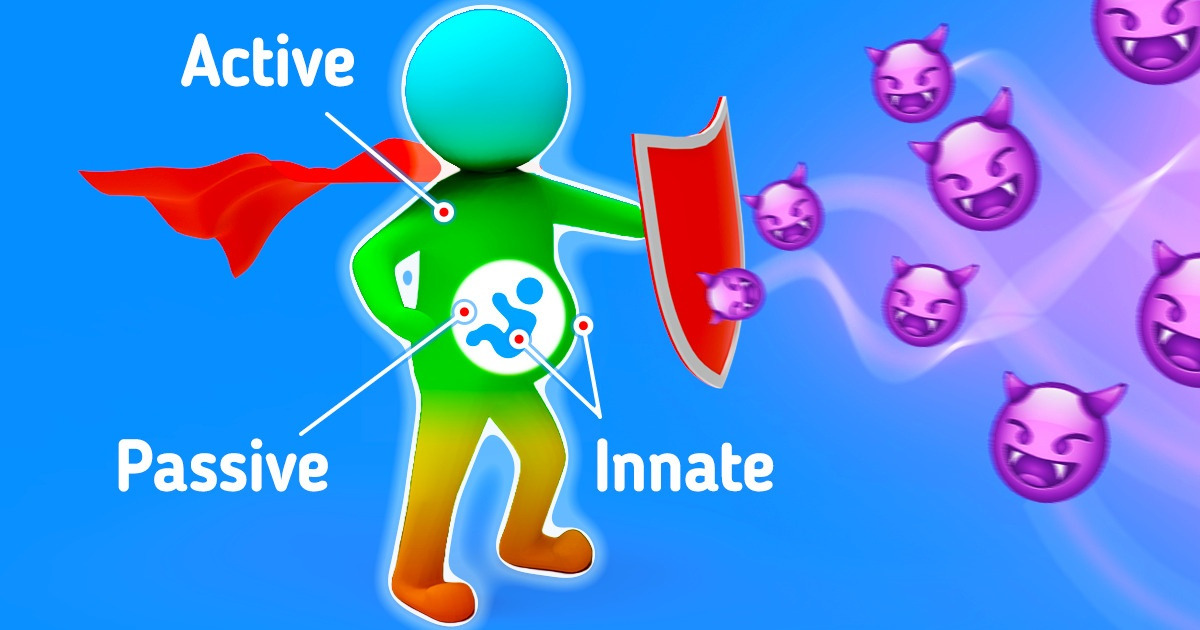
5-Minute Crafts found out what the immune system is, how it works, and how we can help it.
What the immune system is
The immune system is the body’s protective mechanism that fights infections and attacks germs to stay healthy.
The name comes from the Latin immunis, meaning “to make safe.”
The first written mention of immunity was made by Thucydides, an Athenian historian, in 430 BC. And Ilya Mechnikov was the first one who developed the full concept of immunity. In 1908, he and Paul Erlich received the Nobel prize for their work in this area.
How the immune system works
Potentially harmful germs are called antigens. When they get into the body, the immune system tries to identify and beat them. The body starts producing antibodies that remain after the illness in case the body meets it in the future.
The work of antibodies is to recognize an antigen and mark it. It allows special T-cells to detect the marked or infected cells and beat them. The antibodies neutralize toxins and activate a group of proteins of the complement system that is a part of the immune protection and helps kill bacteria, viruses, and infected cells.
Kinds of immunity
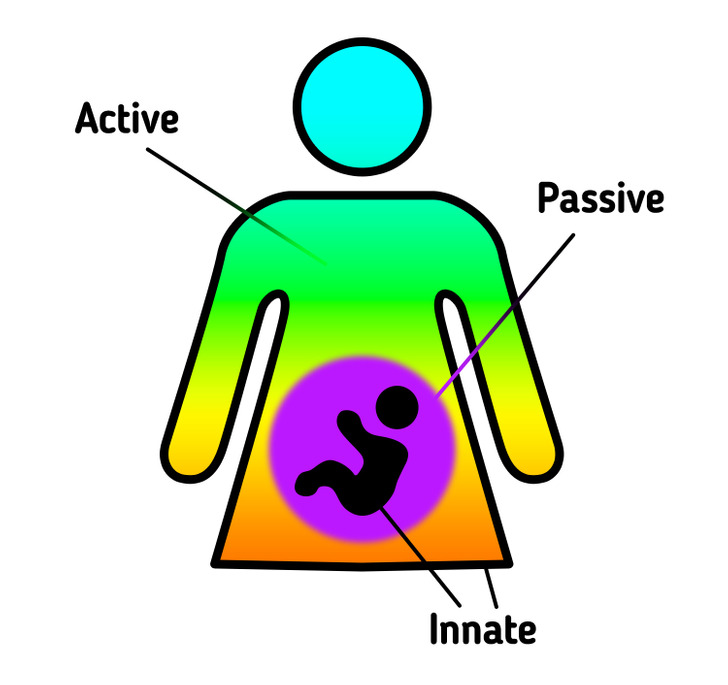
There are 3 types of the immune system:
- innate
- active
- passive
Innate
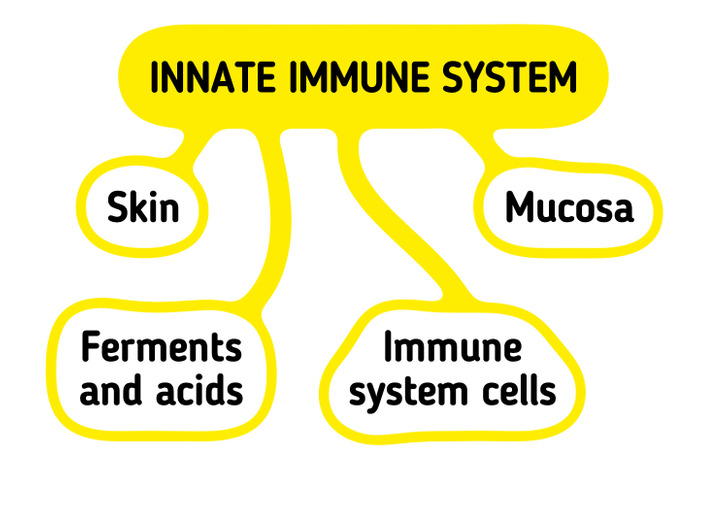
This is the natural immune system people are born with and it’s the first line of defense. The surface of the skin and mucous membranes prevent germs from getting inside the body and ferments with acids also help. If germs manage to get through the outside barrier, special cells and proteins are activated. For example, if you cut your skin, inflammation around the damaged area starts: the skin goes red, it swells, and heats up which means the protection of the innate immune system is working. Other examples of innate immunity are a cough, gastric juices, tears, sweat, hair-like structures in the bronchi (cilia), and bowel muscles. The innate immune system has only limited power to stop germs from spreading.
Adaptive
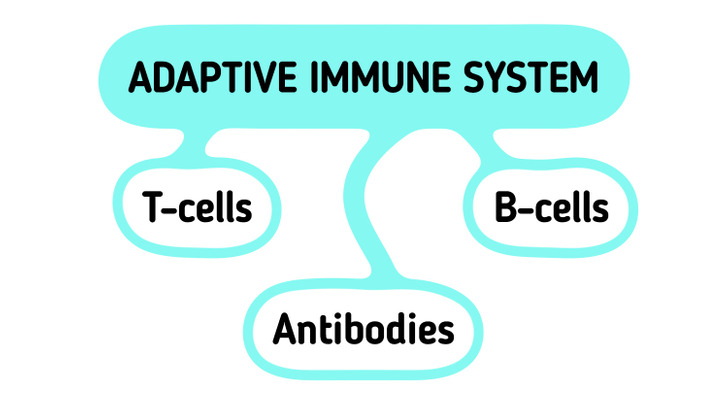
The adaptive (active) immune system develops over our entire life. It happens as a result of the illnesses or vaccines a person has had. This kind of protection consists of:
- T-cells (these cells activate adaptive immune protection, detect and destroy infected cells, and memorize infections)
- B-cells (these cells produce antibodies and memorize infections)
- Antibodies (these cells neutralize germs, activate other components of protection, and support natural immunity)
The adaptive immune system is activated when the innate system can’t handle the infection. The adaptive immune system reacts slower than the innate but better because they first need to find the germ. The protection will memorize it and will react very fast in the future. This is why people get certain illnesses only once and then the body is protected from them.
Passive
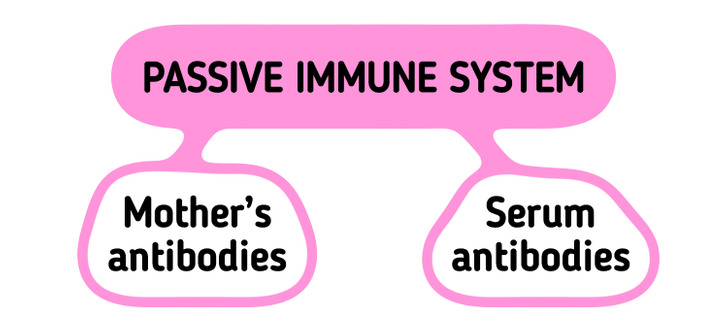
This is a borrowed short-term immunity. It appears thanks to the antibodies that were developed in someone else’s body. A good example of this immunity is when a baby is born with antibodies from their mother. But they don’t remain in the body forever — they disappear before the child turns 1 year old.
Another example is injecting a serum that already contains the antibodies formed by another person or animal. Passive immunity gives imminent protection but it’s not for a super-long time.
What makes the immune system weaker
- Poor sleep. Lack of sleep has a negative impact on the body’s innate protection. 4-hour sleep lowers the immune system cells’ activity to 72%. Irregular sleep lowers the antibodies’ production to 50%. So, it’s important to get regular good sleep.
- Bad habits. They suppress the normal activity of immune cells.
- Stress. Stress releases hormones like cortisol that suppress inflammation (inflammation is initially needed to activate immune cells) and the action of white blood cells.
- Bad food. A lack of nutrients can impair the production and activity of antibodies and the cells of the immune system.
- Older age. The deficiency of nutrients lowers the protective functions and fewer immune cells are produced in old age.
- Chronic illnesses. These illnesses attack and destroy immune systems.
- Extra weight. Adipocytokines produced by fat tissue can cause inflammation.
What makes the immune system stronger
